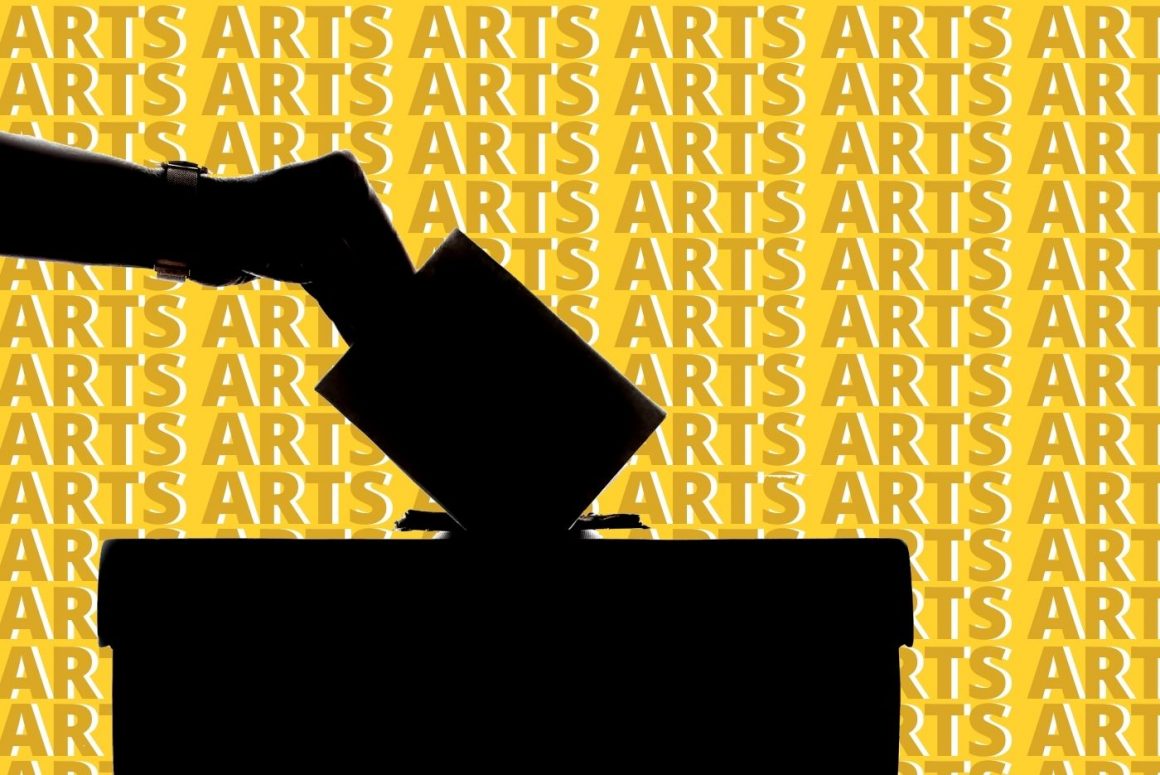
SU election supplement 2021: Faculty of Arts representatives
Along with the responsibilities outlined for all SLC members, faculty representatives are accountable for responsibilities particular to their role including: Reporting to students of their faculty the policies, positions and programs of the SU, reporting to their faculty itself (e.g., Dean’s Council) the policies, positions and programs of the SU, representing student constituents of their faculty at SLC, representing student constituents of their faculty on university committees and reporting to the VP Academic on matters of academic importance within their faculty.
Fayo Abdi
In one of the few contested races, with many candidates vying for the top four spots, Fayo Abdi is looking for reelection in March.
Her commitment to Equity, Diversity and Inclusion (EDI), career development for arts students as well as continued student consultation to bridge the “disconnect between the SU themselves and the actual students,” sees Abdi committed to the goals she set for herself from her previous term. One of the things that Abdi stressed was the push to increase student consultations before planning events, or getting the arts community engaged in some of the SU’s initiatives. “The times that I did have those conversations with students, it made a big difference and I think that’s the biggest thing that I’ve been hearing from students as well,” Abdi says.
With regard to her platform outline speaking specifically to the importance of EDI on campus and within the Faculty of Arts, Abdi stated that, “after the resurgence of the Black Lives Matter movement over the summer, it was very important for me to use my voice whenever I could. If I am able to advocate for students […] of all different cultures, ethnic backgrounds or genders that feel underrepresented, I want to be able to kind of take that stance or be that voice in any way that I possibly can.”
Determined to continue speaking out and ensuring student voices are heard, Fayo Abdi is prepared with knowledge from her past experiences for this role.
Chaise Combs
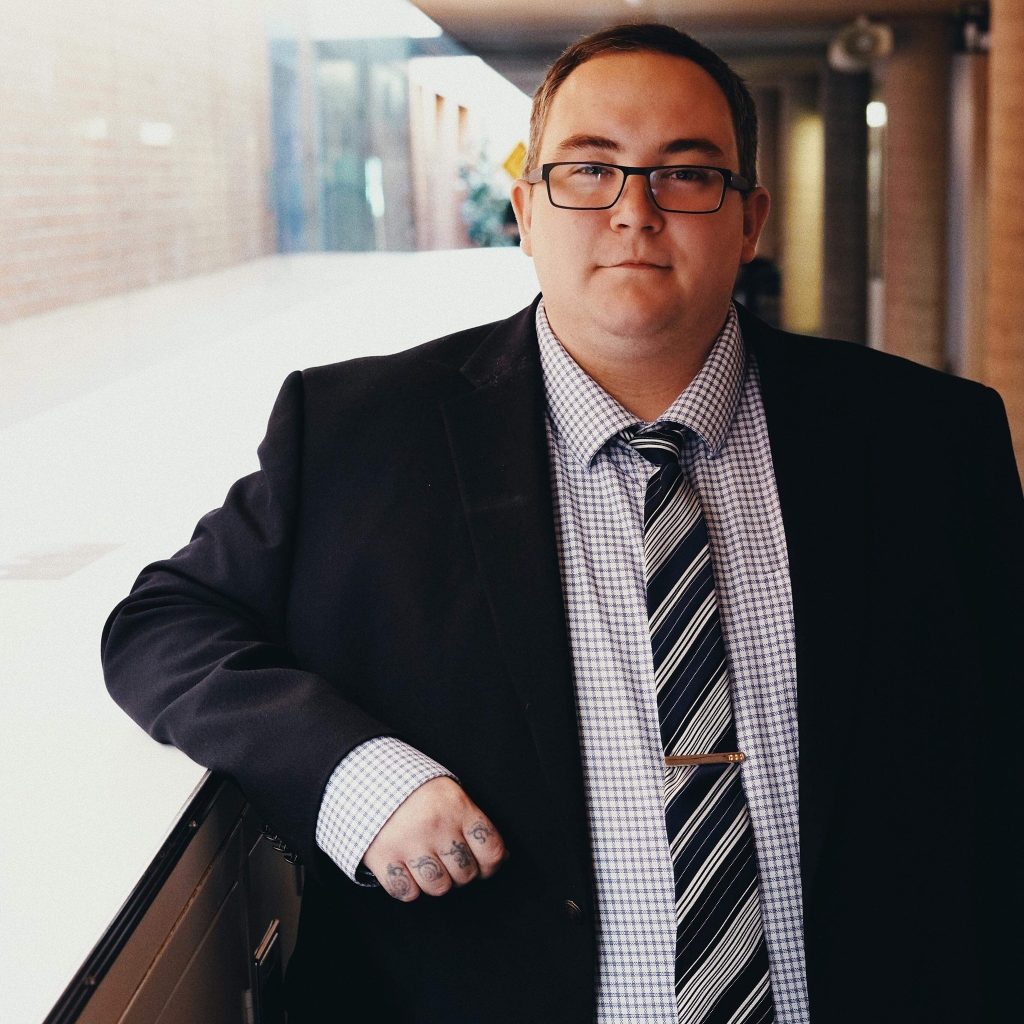
Chaise Combs has significant political experience and he’s passionate about advocating against what he calls the dismantling of Alberta’s post-secondary sector. He says he’s heard from students in the Alberta student movement that while advocacy is necessary, it isn’t sufficient. He wants to “introduce more elements of activism” into the Students’ Union.
In a time when tuition is rising and COVID-19 is presenting so many challenges, more activism might be welcome. We worry though, that he’s only consulted with students in activist circles. His platform focuses heavily on external advocacy and it comes across as anti-establishment, which would work better in a vice-president external platform. As a faculty representative he needs a few more points that focus on other things students care about — career and networking opportunities, co-op placements and student life.
Combs cares deeply about access to mental health services, food security and alleviating student hardship, which is admirable. He also wants to remove barriers to accessing scholarships and funding opportunities.
Overall, if political activism is what you want to see in the SU, you should vote for Combs.
Justin Gotta
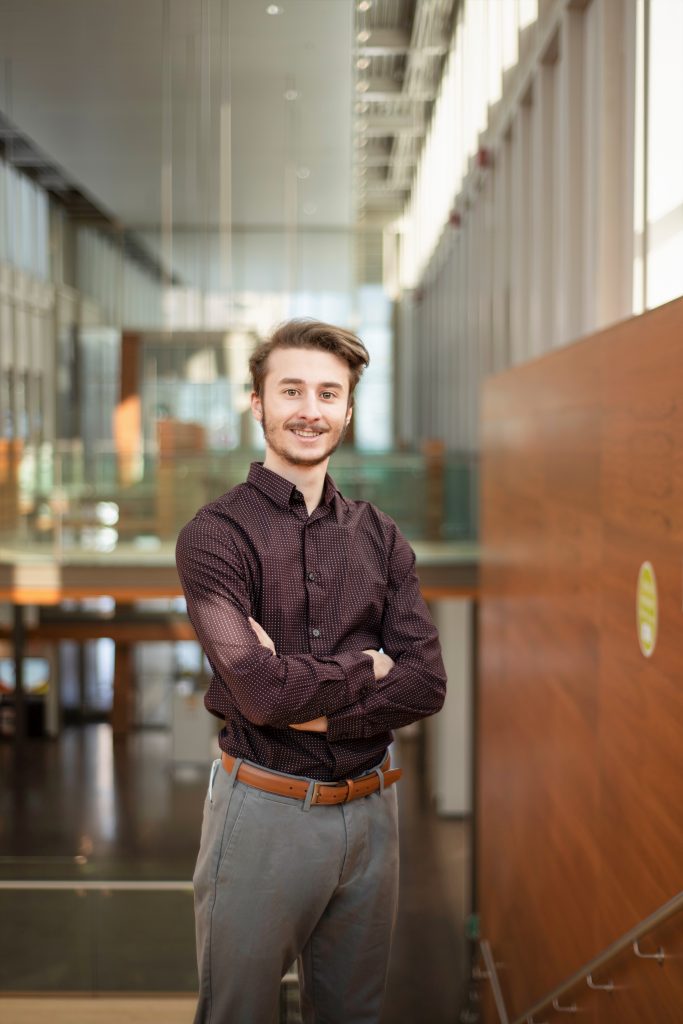
Justin Gotta has been a Faculty of Arts representative for the last two years and he’s seeking a third term. Students from the School of Creative and Performing Arts (SCPA) are perpetually underrepresented on the Students’ Legislative Council (SLC) and though Gotta isn’t in this program, he’s done a fantastic job at reaching out to this group of students. When Gotta says he’s passionate about the Faculty of Arts, he certainly means all students within the faculty and that’s exactly what’s needed in this position.
His desire to have SCPA and co-op students receive priority vaccinations for COVID-19 is admirable, but with vaccines in such short supply, it would be very difficult to achieve unless he could get the full weight of the province’s university organizations behind him.
Gotta says he’ll fight for continued accommodations for students during what is sure to be another challenging academic year. As part of the SLC that managed to achieve a credit received option and 24-hour windows in which to complete examinations, Gotta is well-equipped to advocate for these options again as he comes with the experience in actually getting it done.
Sofia Huarte Aguilar

Huarte Aguilar plans to utilize the SU’s soon-to-be-formed Organizing Committee in order to further fight against tuition hikes. She plans to help mobilize specifically arts students and help create a faculty student organization similar to the Council of Alberta University Students (CAUS). She would also like to implement a food cooperative in Mac Hall, to help bring more diverse food options at affordable prices. While this has been a popular platform point in the past, these types of campaign promises can usually fall to the wayside — especially in a non-executive role. Both of these platform points are quite ambitious for just a faculty representative, however Huarte Aguilar seems motivated to attempt to follow through if elected.
Her plan to increase representation for international students at the university is largely conventional, as she outlines that she will be using things like social media campaigns to “get the word out there about issues that students are facing right now.” Services like lowering course loads while still maintaining proper visa status as an international student are available, however, she states that “students often don’t know that these things exist, they often don’t know that these things are there for them,” and continues that even though services are there for students, it is still “hard to access them.”
A candidate prepared to advocate from the perspective of an international student, Sofia Huarte Aguilar comes through with ambitious ideas and a focus on representing the voices of marginalized students.
Rody Visotsky
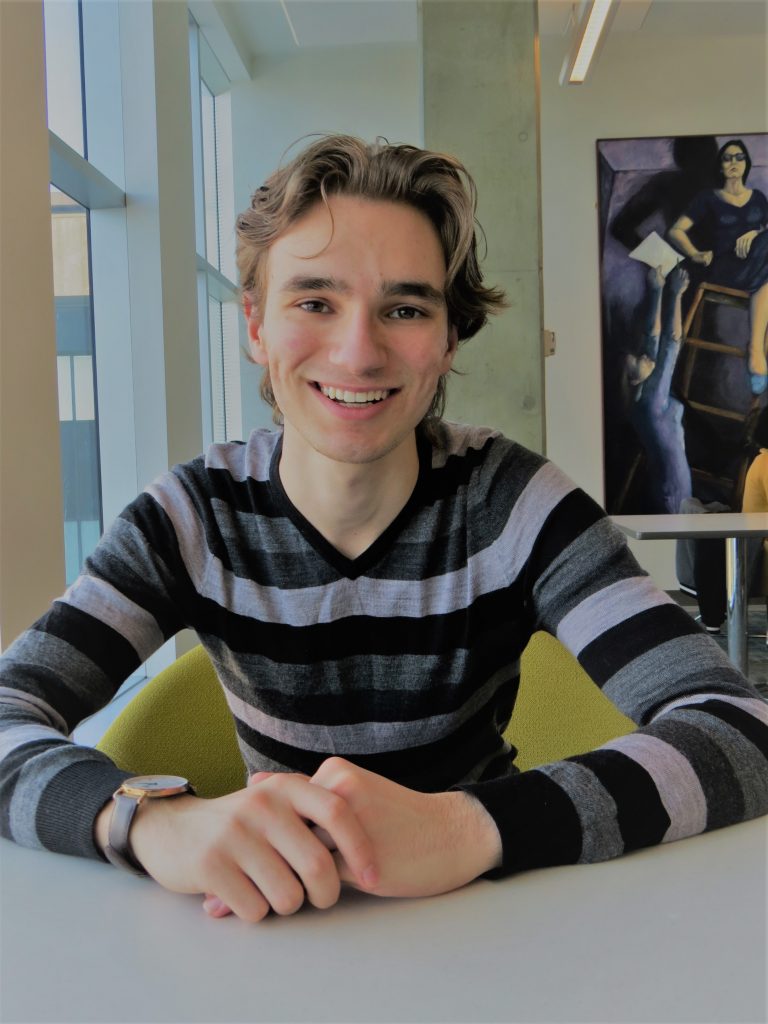
Rody Vistotski has a big platform, but don’t think for a moment it isn’t well thought out. Significant work has gone into every detail of his platform and he’s absolutely equipped to fulfil his promises. There’s no naivety in Visotski. He knows what’s possible and knows that promising the world and delivering nothing is terrible practice.
Visotski wants a “more equitable campus with a better culture overall and a better quality of life as a student at the University of Calgary.” He’s aware of the specific issues faced by first-year students and wants to help integrate them into the campus community right away through a series of doable and helpful measures like a first-year landing page on D2L and a mentorship program.
Applied learning and networking opportunities are important to Faculty of Arts students and a significant portion of his platform is devoted to these items.
One of the most impressive things he’s noted is that the pandemic has uncovered issues “that we were comfortable ignoring.” Visotski showcases a remarkable level of awareness about the issues facing students.
Visotski genuinely wants to earn the student vote. He tried last year and was unsuccessful, but says he’s going to keep running until he’s elected.
“It’s happening again so get ready” he laughed during his interview with the Gauntlet.
Vistoski’s personality is infectious and when he talks, you want to listen. He’d be someone that students would feel comfortable approaching with questions, concerns and even criticism.
When Visotsky says his “heart is in the arts,” he means it. He would be an exceptional choice for Faculty of Arts rep.
Kanchan Dhanoa
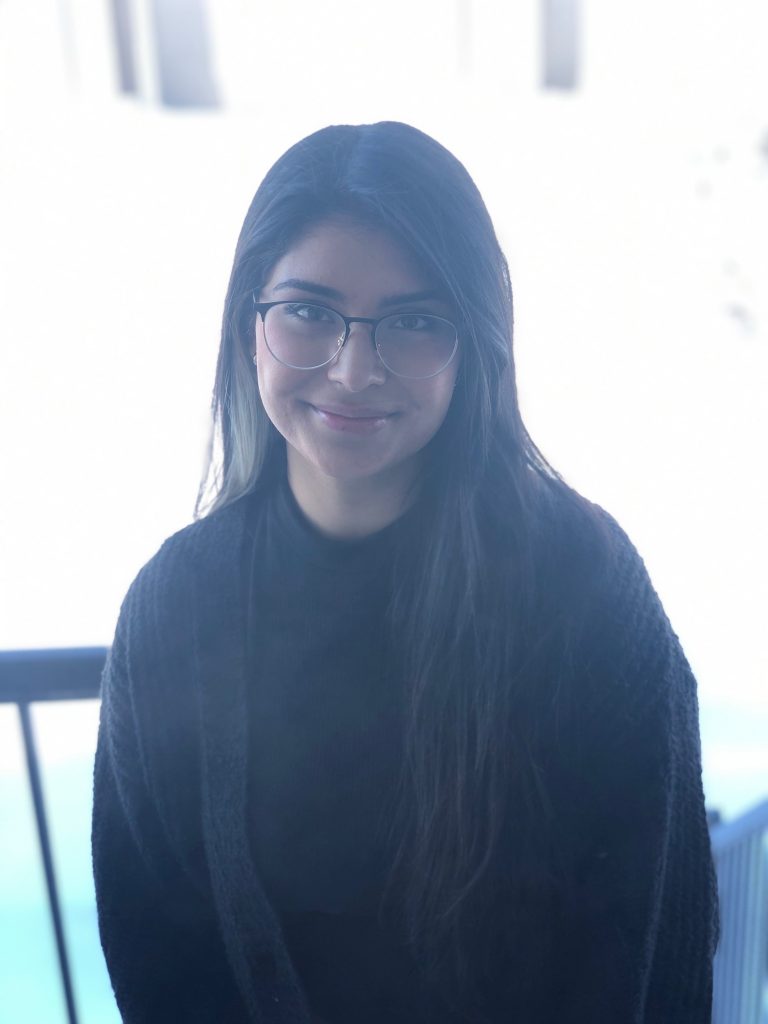
Kanchan Dhanoa is running on a relatively simple platform which mainly includes bridging the gap between students and faculty through increased communication regarding events and work opportunities.
Echoing popular sentiments gained from almost a year online, Dhanoa states that, “in a very large and diverse faculty, it’s often easy for students to feel really lost in the crowd or feel like they’re being neglected. It seems like we don’t really become aware of opportunities sometimes until they’ve already passed us by.” Dhanoa maintains that her solution to this problem is to centralize these resources making them easier for students to access.
Dhanoa also wants to ensure that new students who have been hit heaviest by online learning will be able to connect with their peers and professors by “facilitating online forums and events, especially ones that are focused on networking and socializing.”
Her biggest goal coming into the Arts Representative position would be to “facilitate that platform in which students can access a multitude of services, ranging from volunteer opportunities to research opportunities.”
Although her platform centres around one major point — increased communication for student opportunities — her plan to follow through with this is solid.
Matthew Herring

Candidate Matthew Herring is looking for increased communication between the faculty and students concerning scholarships, job opportunities and events, as well as mental health services. Herring also aims to help the Faculty of Arts Students’ Association (FASA) become self-funded, if elected.
Herring maintains that although he would only be one out of four arts representatives, he sees himself as a part of a bigger whole. Pushing for increased opportunities for students requires more communication from the faculty, but Herring sees his role as a way to work with the entire Students’ Union to push for things like mental health services or compassionate grading.
When asked about his most ambitious platform point — making FASA self-funded — and how he plans to make up the budget given to FASA by the Faculty of Arts, Herring stated that, “Looking into FASA’s funding, I found that they get around $14,000 a year from the Dean’s Office. My idea is to implement either a $2 or $3 levy collected by the Students’ Union.” Herring further states that this money will be collected from arts students and will be made optional. Hypothetically, Herring states that, “with a $2 fee, a nine per cent opt-out rate would be making FASA the same amount of money that they were making from the Dean’s Office this year.”
Herring’s platform calls for dramatic change, however, introducing a levy to students amidst tuition hikes and a global pandemic seems like an unpopular choice. Although introducing a levy would need to be approved by students via referendum, Herring believes this idea isn’t so far out of reach.
“I know the whole FASA thing is a big goal, it’s a big plan, but I think the most important thing is showing that I will not back down from this. I think my platform has the needs of students in mind.”
Remember, the supplement constitutes the opinions of our panel — it’s important that you read the candidate’s platforms on the SU’s website, interact with those running for positions, ask questions and make up your own minds about who deserves your vote!
